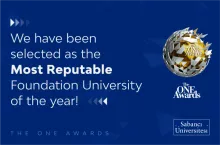Thanks to the SENTRUM project which continues under the cooperation of Sabancı University, Enerjisa Energy and UNDP, Ayvalık Küçükköy will set an example for sustainable tourism.

The first phase studies were completed in the SENTRUM project started last August by Sabancı University, Enerjisa Energy and the United Nations Development Program (UNDP) to make Ayvalık Küçükköy a sustainable energy-based tourism implementation center. SENTRUM aims to enhance the access of tourism sector, one of the most important sectors of Turkish economy, to renewable energy, and contribute to transforming this sector to a sustainable structure by enhancing its energy efficiency potential.
Efforts are continuing in Küçükköy, which prepares to set an example in Turkey for its “green destination model”, in order to make tourism businesses and public buildings energy efficient in addition to extending renewable energy and other sustainable tourism practices.

New solutions and energy-efficient practices will expand
In this context, preliminary due diligence was carried out in small businesses in the region to evaluate their current standing in terms of energy consumption spots in their premises, energy performance analysis, energy efficiency and savings opportunities. Lighting was found the most important energy efficiency opportunity in these businesses. Replacement of current light bulbs with LED bulbs alone will help save energy by 80-95%.
In the framework of this study which is carried out on a company-by-company basis, selected businesses in the region will be granted support to replace their inefficient equipment. In addition, awareness-raising, training and events will be organized for the business owners and the local people about energy, environment and sustainable tourism.
In order to support agriculture, which is among important sources of income in the region, cooperation will be made with local producers in the framework of responsible production and consumption in an effort to let agriculture and tourism support each other.
In addition, tourism values of the region were determined in the context of making the region a green destination, and global green destination standards and good practices from other countries were examined.
Innovative energy solutions are being provided to the iconic buildings in the region
In this context, the goal is to make the buildings included in the project energy-efficient and self-sufficient without modifying their original structures with a perspective to lead sustainable tourism implementation. Energy efficiency areas and potential improvements were discussed during the studies carried out at Halis Komili Primary School, Küçükköy Cultural Center, Küçükköy Central Mosque, City Museum and Sabancı University Creative Technologies Atelier. Thanks to this project, establishment of energy-efficient structures that derive their energy from the nature will set a role model in the region and mean another step to the sustainability targets. Enerjisa Energy company will integrate solar energy systems, LED lighting conversion, and e-charging solutions for electric vehicles in the framework of “the Energy of My Business” project, thus providing an additional 5 million TL of contribution to the SENTRUM project.

Rasim Karas, Secretary General of Sabancı University, said the following about the SENTRUM project: “As Sabancı University, we always believe in the strength of creating and developing together. Accordingly, we collaborate with the private sector, public sector and industrial companies to realize projects that contribute to society. We offered science and technology training to 1649 students from 24 schools at the Sabancı University Creative Technologies Atelier, which aims to raise individuals who are aware of the world's problems, have the desire and ability to find solutions to the problems, and who are capable of achieving sustainable development. We are now acting together with Enerjisa Energy and UNDP in the SENTRUM project hosted by the Sabancı University Creative Technologies Atelier to transform Küçükköy to a Sustainable Green Destination Model. The SENTRUM project, whose quick-wins can already be seen, will be a leading project to support green tourism. We are proud that the Creative Technologies Atelier hosts such an important project”.
Talking about the current status of the SENTRUM project, Ebru Taşçıoğlu, Head of Sustainability and Corporate Capabilities at Enerjisa Energy, said the following: “We think that the SENTRUM project, which we believe will add value to the future of tourism in the region and the country, will help Küçükköy unleash its potential and carry it to the position it deserves. After our launching event, we received positive feedback from the local people and the local administrations, which keeps us very excited and motivated. We will not confine our project to tourism businesses, buildings and museums in the region. As Enerjisa Energy, we support this project through the integration of products under “the Energy of My Business” umbrella with a focus on energy efficiency, savings, reduction of carbon emissions, use of renewable energy sources on the basis of sustainability, and we believe this project will mark the beginning of a great transformation. With this in mind, we will continue to carry out projects that contribute to the future of our country and the energy sector for a greener world.
In addition, we are here today with our “I Protect My Energy” Children’s Theater, which we have continued for 11 years to contribute to raising the awareness of the local people and our children about energy efficiency and sustainable tourism”.
Mustafa Ali Yurdupak, UNDP Turkey’s Public Sector and Social Policies Portfolio Manager said the following about the project: “As UNDP, we have been working for a long time on sustainable tourism, energy efficiency and the use of renewable energy sources in various regions of Turkey in order to support sustainable development. The SENTRUM project we implement in Küçükköy is an initiative we contribute to with our experience in this field and I believe the project will contribute to local economic development.
Our goal is to make Küçükköy a destination where energy efficiency is secured everywhere from commercial businesses to public buildings, renewable energy practices are applied, businesses procure their agricultural products from local producers, water is used efficiently, waste is sorted, local culture is preserved and visitors want to visit not just in summer months but all round the year with the green destination model that we are trying to build. I believe we will raise awareness about tourism and energy through our applications and training sessions in the region”.
It will be ensured that municipalities, related public institutions, NGOs, universities and the local people attend project activities to strengthen the adoption and inclusivity of the project at the local level. For that purpose, awareness will be raised about energy efficiency and renewable energy through the Green Energy Center which will be established at the Sabancı University Creative Technologies Atelier in Küçükköy.
Launched in August 2021 by Sabancı University, Enerjisa Energy and UNDP, the Sustainable Energy-Based Tourism Implementation Center (SENTRUM) initiative is intended to last for 18 months.

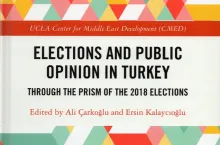
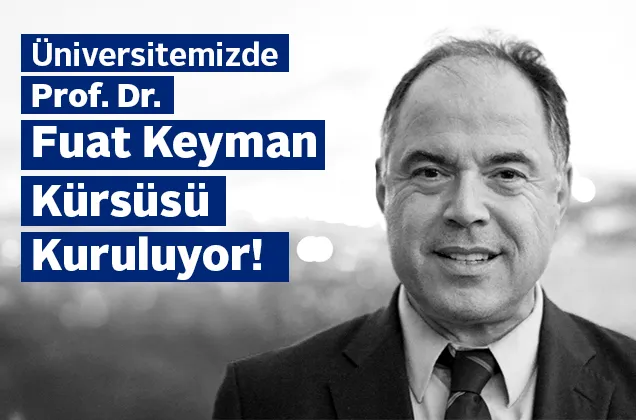





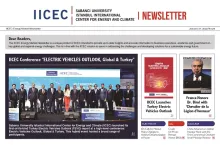


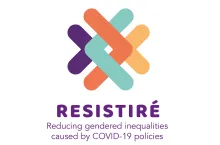

 EMPLOYERS WHO CARE: contributing to the positive transformation of the homecare sector and the working conditions of domestic workers. Application deadline: 31 January 2022, 12pm.
EMPLOYERS WHO CARE: contributing to the positive transformation of the homecare sector and the working conditions of domestic workers. Application deadline: 31 January 2022, 12pm.



